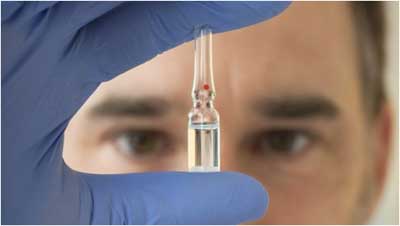- Home
- Editorial
- News
- Practice Guidelines
- Anesthesiology Guidelines
- Cancer Guidelines
- Cardiac Sciences Guidelines
- Critical Care Guidelines
- Dentistry Guidelines
- Dermatology Guidelines
- Diabetes and Endo Guidelines
- Diagnostics Guidelines
- ENT Guidelines
- Featured Practice Guidelines
- Gastroenterology Guidelines
- Geriatrics Guidelines
- Medicine Guidelines
- Nephrology Guidelines
- Neurosciences Guidelines
- Obs and Gynae Guidelines
- Ophthalmology Guidelines
- Orthopaedics Guidelines
- Paediatrics Guidelines
- Psychiatry Guidelines
- Pulmonology Guidelines
- Radiology Guidelines
- Surgery Guidelines
- Urology Guidelines
Nonfasting cholesterol test as precise as fasting cholesterol test in predicting CVD, finds JAMA study

How well a nonfasting cholesterol test can predict future cardiovascular events for patients is a burning question asked by health professionals. A large study led by investigators at Brigham and Women's Hospital, Harvard Medical School, and Imperial College presented strong evidence that nonfasting cholesterol test was as precise as fasting cholesterol test in the same individuals in predicting cardiovascular risk such as heart attacks and stroke. The findings were published in JAMA Internal Medicine.
The study suggested that it is not necessary for most patients to fast before going for a complete cholesterol test to determine the risk of future cardiovascular events.
The team found that risk associations of nonfasting cholesterol levels with coronary events were similar to those for fasting cholesterol levels measured four weeks later. When patients were not fasting, they had modestly high triglyceride levels but similar cholesterol levels compared to when they were fasting.
Since the 1970s, studies have suggested that fasting and nonfasting before a complete cholesterol test, otherwise known as lipid level testing, may make little difference in assessing who is at risk for a future heart attack, stroke or other cardiovascular events. But most of these studies were conducted by comparing groups of people at a population level rather than in the same individuals.
"We hope this study will be the final nail in the coffin, providing strong evidence that, within the same person, fasting or not before a lipid level test doesn't matter for predicting cardiovascular risk," said corresponding author Samia Mora, MD, MHS, a cardiovascular medicine specialist and director of the Center for Lipid Metabolomics in the Divisions of Preventive and Cardiovascular Medicine at the Brigham and an associate professor at Harvard Medical School. "This should reassure health care providers and patients that it doesn't make a difference if you fast or don't fast if the goal is to predict your cardiovascular risk."
To conduct their study, Mora and colleagues conducted a post hoc prospective follow-up study of participants from the Anglo-Scandinavian Cardiac Outcomes Trial-Lipid Lowering Arm (ASCOT-LLA), a randomized clinical trial. Fasting and nonfasting lipid levels for more than 8,000 participants were measured four weeks apart with no intervention in between. Patients were followed for a median of 3.3 years for major coronary events (heart attacks, fatal coronary heart disease) and atherosclerotic cardiovascular disease (heart attacks, stroke, and related deaths).
"We spend most of our lives in a nonfasting state. And for some patients, especially those who are elderly or have diabetes, it can be risky to fast before lipid testing," said Mora. "Health care providers held back because of concerns of variability within individuals, but the data here is so convincing. It should allow people to feel more comfortable with nonfasting lipid testing for cardiovascular risk assessment, including when taking a statin."
Mora and colleagues note some important limitations to the study. ASCOT-LLA involved European participants, and while they represent multiple European countries, the majority were white and male. The researchers expect that the findings will be relevant to more diverse populations but note that future research should assess potential ethnic and/or racial differences.

Disclaimer: This site is primarily intended for healthcare professionals. Any content/information on this website does not replace the advice of medical and/or health professionals and should not be construed as medical/diagnostic advice/endorsement or prescription. Use of this site is subject to our terms of use, privacy policy, advertisement policy. © 2020 Minerva Medical Treatment Pvt Ltd